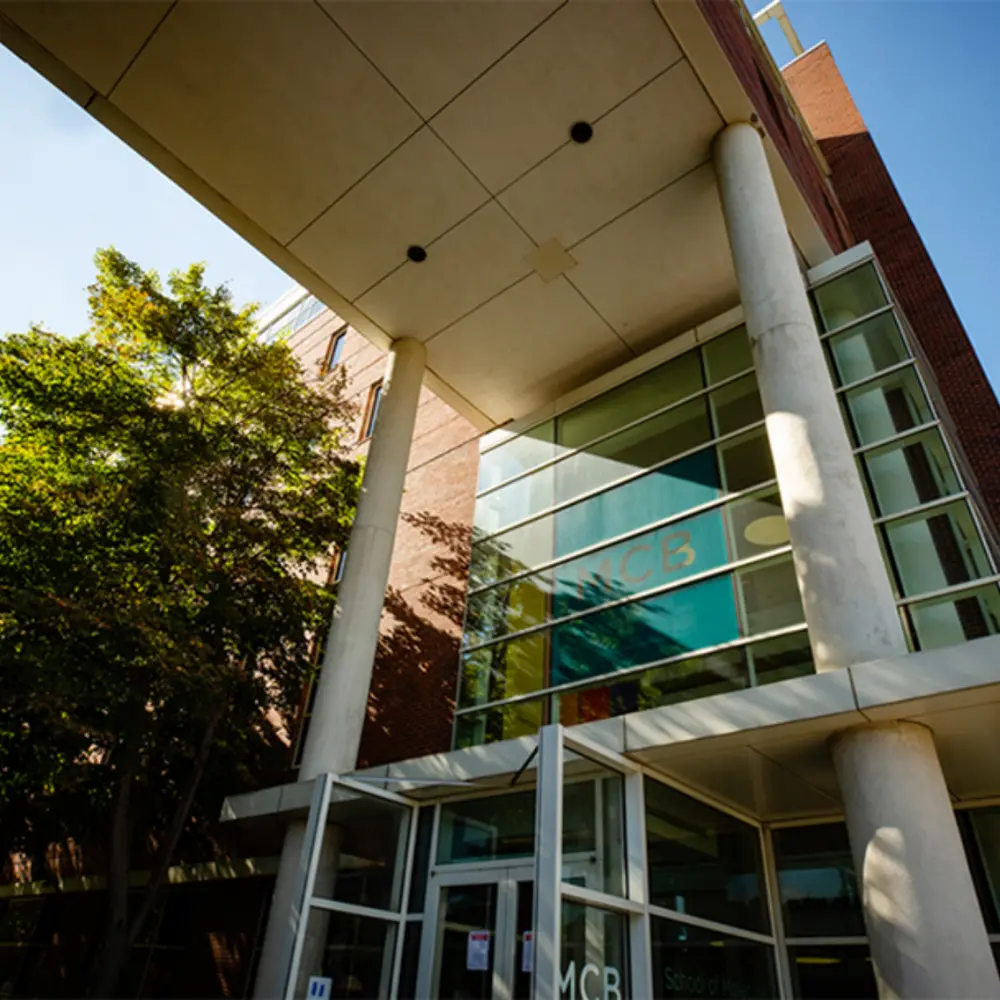
Members of MCB's faculty and staff have completed training programs that address mental health needs of MCB students and the broader University of Illinois Urbana-Champaign community.
The school offered two sessions of the National Council for Mental Health Wellbeing's Mental Health First Aid training this summer, led by UIUC's Chez Veterans Center and Carle Foundation respectively. The course teaches participants how to identify, understand, and respond to signs of mental illnesses and substance use disorders.
"We have all noticed that our students are struggling with unprecedented levels of pressure, stress, and mental health challenges, and the pandemic and other world events have only exacerbated the situation," said Professor Rachel Smith Bolton (Department of Cell & Developmental Biology), the assistant director for Diversity, Equity, and Inclusion at MCB. "Most faculty are not formally trained to have conversations around mental health, or approach our students and assess their well-being when we are concerned. By undertaking this certification, we aim to develop the skills and confidence to reach out to our students and guide them to the resources that will best enable them to care for themselves and achieve academic success."
Participants in the two different sessions included members of the MCB Instructional Program (advisors and instructors), some faculty and staff from departments, and members of the school's communications and administrative teams.
Need help now?
If you or someone you know is struggling or in crisis, help is available. Call or text 988 or chat 988lifeline.org for the National Suicide and Crisis Lifeline.
If you are in crisis, you can also call the 24-HOUR LOCAL CRISIS LINE at (217) 359-4141.
The university's Mental Health and Wellness website is a centralized place with information on resources available on our campus. The site is also designed to help users identify their concerns and connect you to the best resource for those concerns. Mental health, wellness, access, and accommodation resources are complex, can overlap, and can be addressed on the individual, social, and institutional levels. The campus site aims to be both specific and flexible enough to get you connected to the right resources to address your concerns.
We care about your health and wellbeing and are here for you. Additional resources and information can also be found below.
Campus Counseling Center
The Campus Counseling Center provides mental health counseling and wellbeing education for students. The center also officers assessments and resources regarding alcohol and drug use.
McKinley Health Center
McKinley Health Center provides a number of services to students, including
- 24 hour Dial-A-Nurse service - lets you speak with a health care professional to coordinate your health care needs
- Visits with primary care provider
- Pharmacy service - many medications are offered at low cost or no cost
- Mental Health counseling and treatment
- Travel exams and inoculations
- Women's Health Clinic
- Health Resource Centers provide over-the-counter self-care supplies at no additional charge
- Health Information from our Health Education Unit
National Grad Crisis Line
1.877.GRAD.HLP (1.877.472.3457)
The National Grad Crisis Line helps graduate students reach free, confidential telephone counseling, crisis intervention, suicide prevention, and information and referral services provided by specially-trained call-takers. Caring, professional staff and well-trained volunteers answer around the clock. All counselors have completed training to understand the unique issues faced by graduate students.
In case of emergency
Medical Emergency
Contact the police department at 9-911 if you are on campus or 911 if you are off campus.
Suicide 911 (Emergency)
- If suicide is imminent, contact the Police Department immediately or Suicide Intervention Team at the Counseling Center at 217-333-3704 (TTY: 217-244-9146) during the office hours (8 a.m. to 5 p.m.).
- Any individual (friend, relative, faculty, residence hall staff) can notify the Suicide Intervention Team, 217-333-3704, if a student they know makes a suicidal threat or attempt and is no longer in imminent danger.
- The suicide incident referral form can be completed here.
- Information about University of Illinois Suicide Prevention Policy
Non-suicide Psychological Emergency
- Contact the Counseling Center at 217-333-3704, Monday through Friday between 8 a.m. and 5 p.m.
- For emergency services after-hours, please call the Crisis Line at 217-359-4141 (TTY: 217-352-4217).
Other Emergencies
- Counseling Center's Trauma Response Team
- Sexual Assault
- Contact the Emergency Dean at 217-333-0050 for other emergencies.T he Emergency Dean is the university official responsible for providing referrals, information, and support to students during a health or safety emergency. Visit their website on when to call and when not to call the emergency dean.
